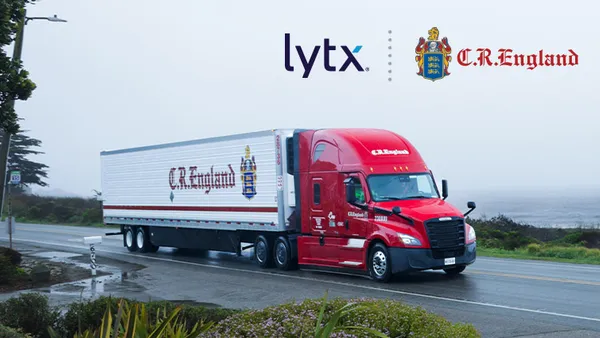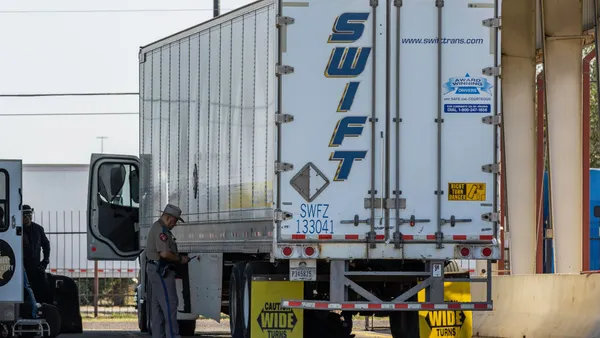Dive Brief:
- The trucking industry has a new association. The Next Generation in Trucking Association officially launched Tuesday, with partnerships with schools in California, Kentucky and Wisconsin, to create driver and technician training programs.
- The association has a nationally registered apprenticeship program through the Labor Department, said Co-Founder Lindsey Trent. Trucking companies and technical colleges can partner with the association to establish those programs, which can allow fleets to hire drivers immediately after they receive a CDL.
- "If somebody goes through an apprenticeship program, after a year of service, they're 90% more likely to still be employed," Trent said. "So, driver retention through an apprenticeship program is pretty big."
Dive Insight:
The driver and technician shortage has been at the forefront of trucking discourse for years, ranking as the top industry concern since 2017. Though quick, immediate fixes have been difficult to come by, Trent said, The Next Generation in Trucking Association is focused on a long-term solution.
"We are trying to get to the root of the problem. So, we are not an overnight fix to their driver shortage today. We are trying to bring awareness to young people, that the trucking industry is a great career field, you can get trained as a truck driver or a diesel technician, and make a great living," she said.
Due to the pandemic, schools had to put many activities on hold, said Trent, who is also the customer and business development manager for Ryder. Perkins Funding for career and technical colleges has decreased, leaving schools looking for other sources of funding. The association found learning institutions were eager to start trucking programs.
Trucking firms, associations, schools and other industry stakeholders became founding sponsors for The Next Generation in Trucking Association. That list includes Ryder, Tenstreet, and state trucking associations from Kentucky, South Carolina, Tennessee and Wisconsin.
With more than $1 billion of federal funding every year available for technical education, the trucking industry has not capitalized as much as it could, Trent said.
Construction has more than 4,000 programs at high schools where students can get certified, she said, and woodworking has 1,200 programs. There are only six CDL programs like that, and 45 diesel tech programs that are certified in Automotive Service Excellence, she added.
"We want to create more programs, so we can be a part of ... getting that federal funding for the trucking industry," Trent said. "All the other industries are kind of beating us to those young, skilled talents. And we're trying to ... just work with educators and schools and institutions to to be able to reach that talent."
The industry has started to get creative with training methodology, making programs more accessible and attractive to younger people.
Alabama-based Wallace State Community College, for example, launched a diesel technology program that students can participate in remotely and use virtual reality technology. And Garner Trucking builds relationships with teachers and administrators at local high schools and the local trade school to plant the seed about driving and being a tech.
Building relationships with schools is something The Next Generation in Trucking Association can help fleets do, once they become members — even firms that have multiple terminals in different locations.
"We would like to come alongside the industry to help them form relationships and partnerships with schools in those areas, to see if we can help start some different programs to help them create that pipeline of skilled talent for their companies," Trent said.












